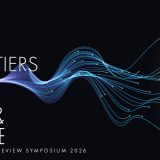
Professor Richard Redding Publishes “The Legal Academy Under Erasure”
October 26, 2015
Chapman University Dale E. Fowler School of Law Professor Richard Redding recently published “
The Legal Academy Under Erasure
” in the
Catholic University Law Review
(Volume 64, Number 2).
From the abstract:
We hear much about the crisis in legal education: high tuition costs, steep declines in law school enrollment, and graduates unprepared for practice who cannot find jobs. Proposals to address the crisis appear to enjoy wide support and may be poised to dramatically change the landscape of legal education. Such reforms will harm law students and the legal profession, placing the legal academy “under erasure,” by: (1) reorienting it from an academically-grounded education towards vocational training, (2) requiring just two years of study for the J.D. degree, (3) allowing graduates of non-ABA accredited law schools to sit for the bar examination, thereby rendering accreditation a toothless mechanism for ensuring academic quality, and (4) gutting faculty scholarship.
Instead, we must make the value of legal education worth its cost by doing a better job of educating and training our students. Legal education is broken because it fails to prepare students for the demands of modern law practice, which is more complex and interdisciplinary than ever before. We need a three-year program that is more robust, one that teaches the core first-year subjects as well as applications of other disciplines (e.g., accounting, economics, psychology) to everyday law practice, exposes students to a reasonable range of specialty areas, and integrates skills training (e.g., client counseling, advocacy, drafting) throughout the curriculum. To accomplish these goals, we should adapt the medical school model to legal education. This would entail a curriculum that provides a comprehensive foundation in basic legal subjects and legally relevant other disciplines, culminating in a series of clinical rotations where the basic doctrinal and interdisciplinary knowledge is applied in practice. I also explain why we should not gut support for faculty scholarship in the hopes that doing so will cut costs and encourage professors to focus on teaching. Contrary to popular claims, engaged scholars are better teachers, and legal scholarship can contribute meaningfully and substantially (though often in ways not readily apparent) to law practice and legal reform efforts. Finally, I suggest that we address the employment problem and improve educational quality by having fewer but better law schools, producing fewer attorneys.
Dr. Richard Redding
currently serves as the Vice Chancellor for Graduate Education at Chapman University, where he is the current holder of the Wang-Fradkin Chair, the highest honor Chapman can bestow on a faculty member for exceptional merit in scholarly or creative activity. Previously, he served as the Associate Dean for Academic Affairs and Associate Dean for Administration, at the Fowler School of Law. Dr. Redding specializes in forensic issues in criminal law; juvenile justice; the use of social science research in law and public policy; the role of sociopolitical attitudes in diversity, and interpersonal and professional functioning; and the ways in which social and political attitudes influence how science is used in policy making. His work in these areas is both theoretical (or policy-oriented) and empirical. Dr. Redding has published over 75 articles and book chapters in leading legal and peer-reviewed scientific journals, including
Law and Human Behavior
,
Behavioral Sciences & the Law
,
University of Chicago Roundtable
,
Utah Law Review
,
American University Law Review
,
Virginia Journal of Social Policy and the Law
,
Washington & Lee Law Review
,
Washington University Journal of Law & Policy
,
American Psychologist
,
Psychological Science
,
Psychological Inquiry
,
Journal of Social Issues
, and the
Duke Journal of Gender Law and Policy
, as well as publications of the American Bar Association, the MacArthur Foundation, the University of Chicago Press, Oxford University Press, and the U.S. Justice Department. He also has co-authored or co-edited four books.

